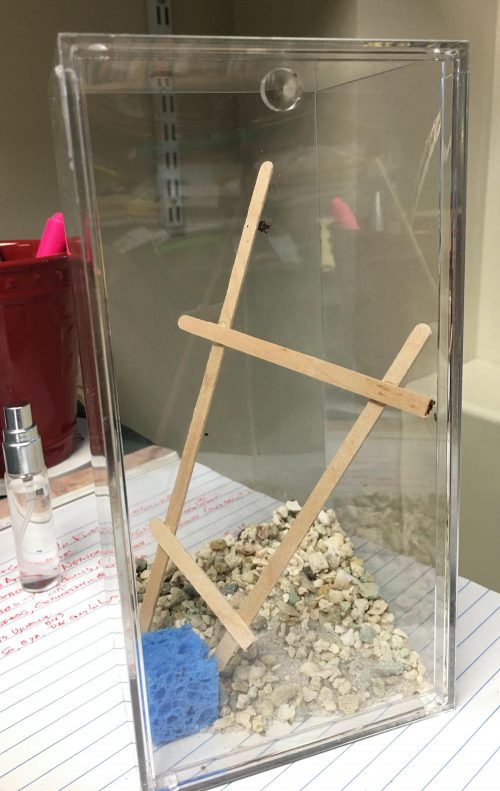I learned something today! There is this spider I keep on my office desk. I’ve always wondered, since these spiders are so passive and patient, and I’m feeding them wingless Drosophila, do they just wait until one stumbles into their web, or do they ever actively hunt? The answer is…they’ll hunt when opportunity arises.
So this spider has webs strung across this wooden frame, and she tends to hang out near the top of one of the sticks.
This afternoon I watched her abruptly descend on a drag line from her perch to the gravelly scree directly below to drop on a fruit fly walking by, bite to kill, and wrap it in silk before hauling it right back to her starting point. It was spectacular!
In case you’re squeamish about this sort of thing, I’ve put a closeup of the proud hunter below the fold.








